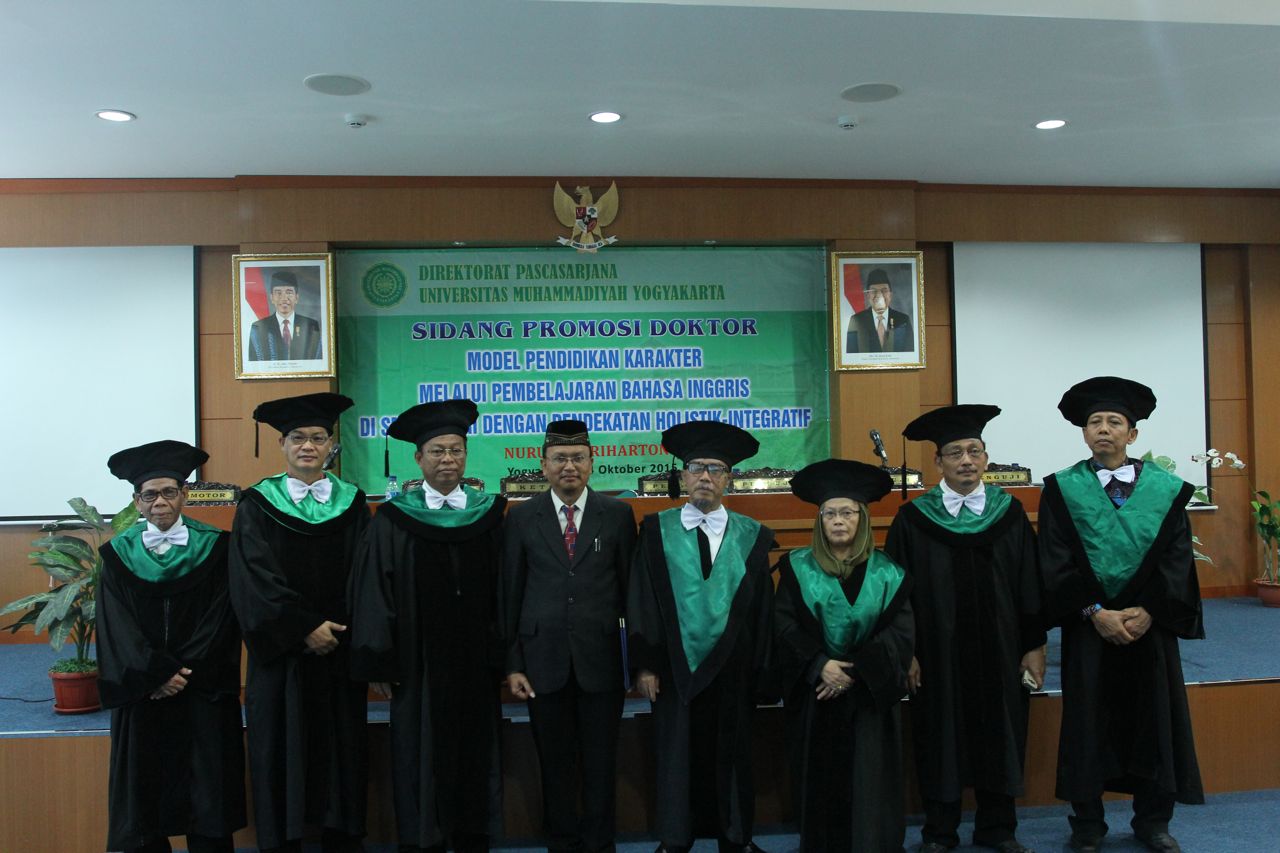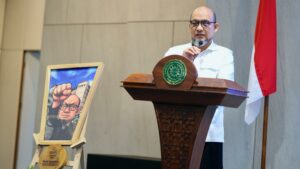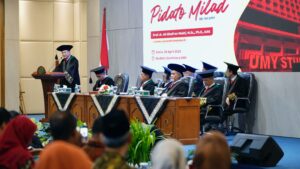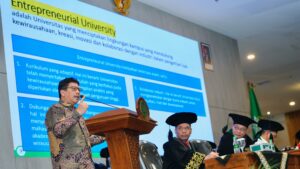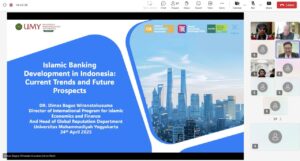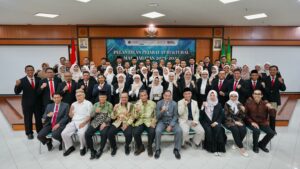Educational quality in Indonesia is elevating each year. One of the causes is adolescent issues like fight among them since their resentment are easily triggered. Another issue led to the decline of educational quality is juvenile delinquency as drug abuse, being drunk, social deviance such as free sex. “Indonesian government has attempted to foster the circumstance like providing character building program, yet the implementation needs to be optimized. For one reason, the educational system does not apply for cognitive, affective, and psychomotor balance. Cognitive aspect is inclined to be more prominent than two other aspects so that it is not surprising if the implementation is not quite good. One of the ways to build characters of young generation is through English education,” presented Drs. H. Nurudin Prihartono, M.Hum, a doctoral student of Psychology and Islamic Education of Universitas Muhammadiyah Yogyakarta (UMY) in a disputation on Saturday (24/10) at Graduate School of UMY.
He conveyed that national characteristic values are supposed to be constructed particularly among young generations through holistic integrative character building on school subjects including English. There are three competences namely attitudes, knowledge, and skills. “English can be a medium to create the characteristics to achieve those three competences. For one reason, English is the very first foreign language in Indonesia considered significant to enhance knowledge and related to other nations. Nevertheless, English learning in Indonesia has not succeed yet,” stated Nurudin who is also an English teacher at SMK Al-Hikmah Karangmojo, Gunung Kidul, and SMA Al-I’thisam Playen, Gunung Kidul.
For instance, English skills of students of XI IPS 2 and 3 at SMN Wonosari and Playen were low. “In fact, the students have learned English for 4 times a week. How come? First, real scholastic achievement of English was low. Grade average of UAS or UAN was 5, and grade average of UH and UTS was far under KKM (minimum standard score). Second, students’ language skills, particularly their speaking, were not adequately good. They focused on national exam that the tested skills encompassing reading, listening, and writing,” he elucidated.
On the contrary, the other barrier was that students were lack of motivation to learn and they argued that English is not essential, difficult, long-time spending, and boring, while the students themselves were lack of preparation, confidence, discipline, trustworthiness, and absorbing power. They were also easily desperate, lazy to learn, individualistic, dependent, less religious, less respect and care, less creative, less responsibility, and less understanding of a teacher’s order. As the result, their grade was low due to these factors. “Students could not achieve the subject objectives like being able to communicate in English fluently and accurately,” he continued.
Character building integrated in English aimed at not only constructing students’ characteristics but also elevating their English score. “Holistic integrative approach through implementing Content-Based Instruction (CBI) pointed at lifting not only students’ achievement but also their attitudes. Besides, CBI will ease teachers to make lesson plans and its evaluation. This method may be able to create excellent and skilled young generation to lead future. Indeed, teachers are spearheads to build values on their students to coin noble excellent community at school,” he explained.
The character building method through CBI, according to Drs. Nurudin achieving excellent predicate for his doctoral degree, can be applied by selecting a certain topic, and can be developed by the teacher and students. “The method can be implemented through inquiry technique, a process of sharing ideas, encouraging students to cooperate in a group, and reflecting their learning process in their daily life,” he maintained.
To optimize the method implementation, it is necessary to engage not only teachers and students but also other stakeholders like all academicians, headmaster, deputy, all teachers, counseling teachers, staffs, gardeners, securities, parents, public figures, and religious figures. If the aspects can maximally be applied, the character building may be internalized by the students,” he ended.
